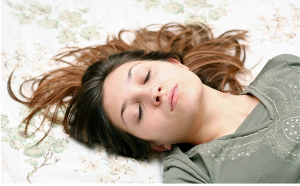
Getting enough sleep, and waking up refreshed are some the best things you can do to maintain a healthy lifestyle. However, busy lives with a myriad distractions can make winding down, getting a good nights sleep, and rising early a sometimes painful process. A recent post on Refinery 29, discusses the ways that night owls and and early birds function differently, and that shifting our sleep schedule is more than just a matter of will power – it is a matter planning.
While some default settings in your sleep pattern may be genetic, you can shift your circadian clock by gradually adjusting your sleep times by 15 minutes. Stephanie Silberman, PhD, a fellow of the American Academy of Sleep Medicine indicates that people will attempt to function on less sleep rather than attempt to adjust their sleep schedule. But it is important to remember that the body’s need for sleep remains constant, and that learning to adapt your sleep to your circumstances is one the best ways to remain healthy.
Also, people’s perceptions of sleep are also a little skewed. Some believe that feeling groggy and less than enthusiastic upon waking up in the morning is indicative of a bad night’s sleep. Not so, says Silberman. This is simply what sleep researchers refer to as “sleep lag,” the time between sleep and the adjustment to waking life. Feeling less the 100 percent first thing in the morning is totally natural and does not necessarily indicate bad sleep.
There are strategies that researchers say can help facilitate falling asleep faster and improve overall sleep quality. Below are three you can try:
Turn off gadgets two hours before bed.
This will be tough for many of us, but studies show that just a two hours at the screen of a tablet can reduce melatonin – a hormone essential for sleep – by 22%.
Catch some rays in the morning.
Light exposure is important to our circadian rhythms. Being exposed to UV light in the morning sends the signal to your body that is time to be awake. This helps set your rhythm so that later in the day you can fall asleep at the proper time.
Try wearing your socks to bed.
Swiss researchers have shown that when you are about to fall asleep, blood flow is redirected to your hands and feet. Covering your feet will help your body temperature drop more quickly and allow you to fall asleep faster.
Read more at Refinery 29.
